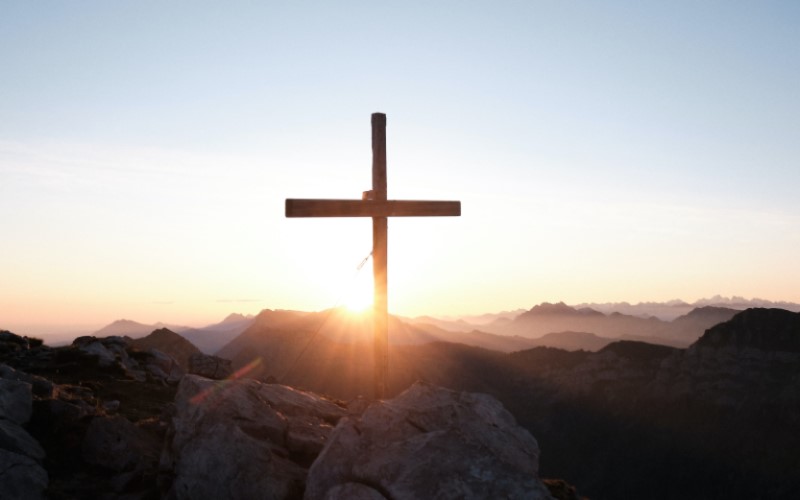George Pell: the Faith vs the Institution
January 21, 2023
Cardinal George Pells vision of a church beyond criticism, its edicts to be slavishly followed, and governed almost exclusively by elderly men sits very uncomfortably with Christs proclamation of the Kingdom of God and our contemporary world.
The death of Cardinal George Pell has dominated the news cycle over several days. Understandably the focus has been on the scandal of child abuse within the Church and the way the Cardinal is perceived to have responded from his position of considerable power and influence. What I believe has received far too little attention has been his resolute support for the Church as an institution rather than commitment to the Church as the body of Christ.
The Sermon on the Mount is prefaced with the Beatitudes which describe the Christ likeness upon which the Kingdom of God is founded. It is not hard to recognise pope Francis against the backdrop of gentleness, humility and meekness described here, hardly a catastrophe as the Cardinal is supposed to have described his pontificate.
It must surely be beyond dispute that Cardinal Pell was a divisive force because in all circumstances he backed the institution, despite all its failings, while less obviously championing the mission for which the institution evolved in the first place and for which any justification for its continuation must rest.
The reality is of course that no institution will survive unless it is seen to transparently serve the mission for which it evolved. Ironically it is George Pells position on the Church as an institution, not the pontificate of Pope Francis, that most threatens the continued life of the Roman Catholic Church. Pope Francis is seen by Christians across all denominations, as well as the world community, as exemplifying the life of Christ, through compassion, inclusiveness, non-judgemental acceptance, love of the poor, and personal humility of life. It is hardly a catastrophe for a leader to manifest the attributes of godliness. Rather than the pontiff being a catastrophe, he has renewed hope that even now the institution might be redeemed to serve the mission of Christ in diverse contexts and cultures.
Put the institution first, be it a political party, a bank, or a Church, and its demise becomes inevitable. Reform the institution in light of changing circumstance and the need to serve the greater good beyond the institution, and it may find continued relevance.
Why did the Cardinal put the Church on such a high pedestal, requiring it to be beyond criticism and its edicts to be slavishly followed. A little anecdote may throw some light.
Anglican and Roman Catholic bishops of NSW met annually for fellowships and discussion, alternately hosted by one or another Sydney Archbishop during my time as bishop of Canberra and Goulburn. Archbishops Jensen and Pell found much common ground in their social, and religious conservatism. Of course, they shared no common ground on the most important issue, their views on the channel by which Gods grace and salvation is efficacious were mutually exclusive.
On one occasion I found myself becoming more and more irritated by the ex-cathedra like address being delivered by the Cardinal. I rather rudely interrupted him and said: Archbishop, it sounds as if you believe the Roman Catholic Church and the Kingdom of God are co-terminus. My fellow bishops of both persuasions did their best to behave as if they were not present! There was a long and rather embarrassing silence, which terminated by the Cardinals assent by default to that proposition.
Now, clearly if that is your position, many of the initiatives of Pope Francis are a catastrophe. In this circumstance it would be a catastrophe to meet with leaders and members of other Christian Churches as fellow channels of grace. It would be a catastrophe to meet with leaders of other faiths as co-workers. It would be a catastrophe to weaken the power of the sacerdotal priesthood by welcoming lay people to positions of authority, or contemplating a place at the table for women.
Believing the Catholic Church and the Kingdom of God are co-terminus is simply not credible and most certainly has no biblical warrant. The activity of God and the movement of the spirit is in no way confined to the Church of any flavour or colour.
The watershed moment in Matthews Gospel narrative is almost certainly Peters acclamation of faith at Caesarea Philippi You are the Christ the Son of the Living God to which Christ replies: You are Peter and on this rock I will build my Church. As is well known, is Greek for rock_._ The rock is Peters statement of faith. Over the centuries it has become obvious that statements or acts of faith are more likely to emerge from the weak, powerless, and humble than from the powerful. The Church and its leadership must be built on such as these. To be in the company of these is, more often than not, to be in the company of women, and as Jesus said, to be in the company of children.
The vista of a Church governed almost exclusively by elderly men sits very uncomfortably with Christs proclamation of the Kingdom of God, quite apart from being a very uncomfortable fit with our contemporary world.
There have been several watershed moments in the history of Christianity. Constantines declaration that Christianity was the official religion of Empire, the 16th century invention of the printing press and the protestant Reformation, the rise of scientists such as Galileo, Newton, and Darwin, the Enlightenment, Europes colonisation of the new world, have all been such moments. There can be little doubt the 21st century is another such moment. Christianity is not at risk, God in Jesus needs no defender, but what is as yet unknown is the structure and shape of Church which will best support the living faith of millions.

